A Wa Nibi: Archiving the Queer Experience of the Past and Present for the Future

Lagos, Nigeria (Minority Africa) — In the last few years, there has been an increase in films, books, and artworks telling the Nigerian queer experience. But despite telling Nigerian stories, they are often unavailable to consume in Nigeria, from films like Ife, which was censored in Nigeria, to bookshops not stocking queer books.
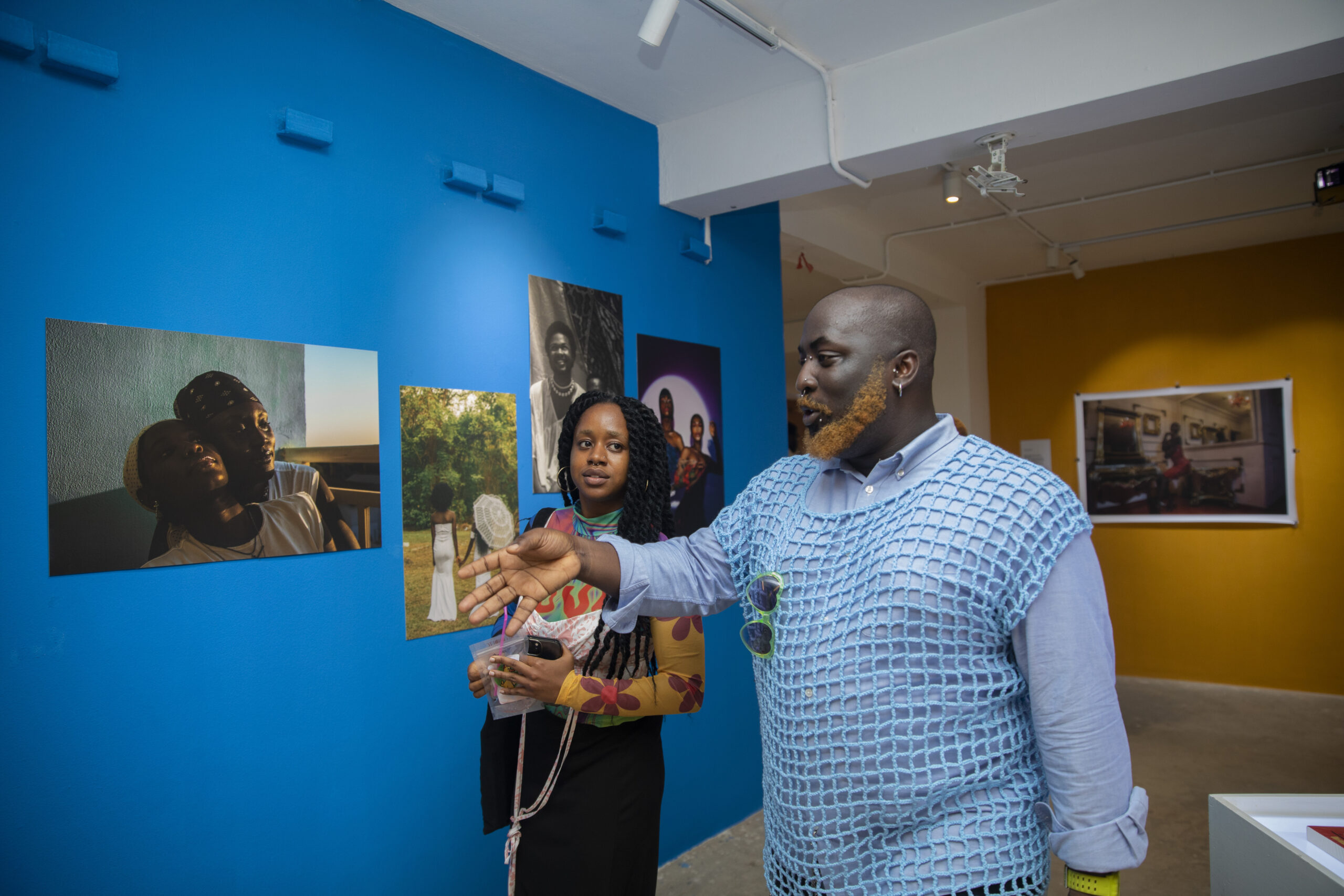
“I curated A Wa Nibi to give a home to queer arts that are often rejected and sent to Western communities where mostly White people consume them,” says Matthew Blaise, curator of A Wa Nibi, an archival project dedicated to preserving the Nigerian queer experience.
Organised by Òbòdò in collaboration with Kampabnagel, A Wa Nibi, which means “we are here in” Yoruba, comes at a time when a new wave of government-endorsed homophobia is spreading across the continent, as queerness is considered un-African.
From censorship in Cameroon to Uganda’s new legislation on LGBTQ+ rights, the misconception that queerness has no history or origin in Africa has been pushed as a fact often used by politicians and homophobes to justify oppression and violence against LGBTQ individuals.
But looking at African history and languages away from the Western ethnocentric Christain views proves this misconception wrong. From Yan Daudu, a Hausa term for “men who act like women,” to Adofuro, a Yoruba word that translates to “someone who has anal sex,” language and history across the continent point to the existence of queer people in various societies. It is language like these A Wa Nibi seeks to document.
“We’re trying to restore the lost and present identities of today. Putting all of that together and giving them the language they deserve because a lot of old materials that may be queer in nature have been given new languages that just take away that queerness from them,” says Blaise.
Talking about queerness in the Yoruba language and how Orishas are non-gendered, Ayodele Olofintuade, a panelist whose recitation of Ifa verses during the exhibition was captivating, says, “Queer behaviours are patterns that defy the norms. They are things we see every day that have been disconnected.”
This disconnect exists due to a lack of documentation, misinterpretation, and suppression of queer history and behaviour and is what A Wa Nibi seeks to address. To achieve this, they organised a focus group discussion, a zine workshop, an exhibition, and a panel discussion, spread over three days, using art and technology to document the existence of queerness, how it’s perceived, and how queer individuals express their experiences through language.
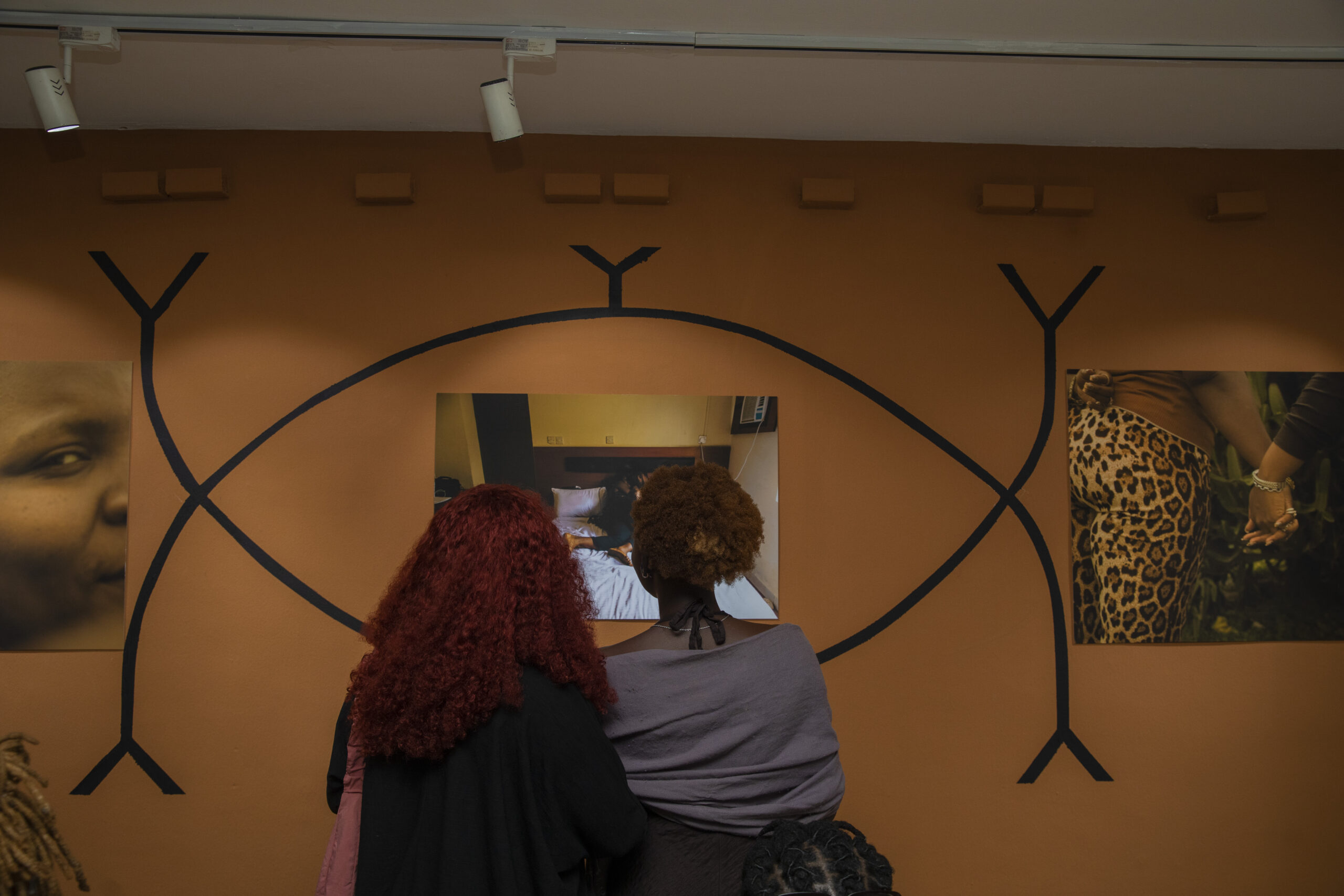
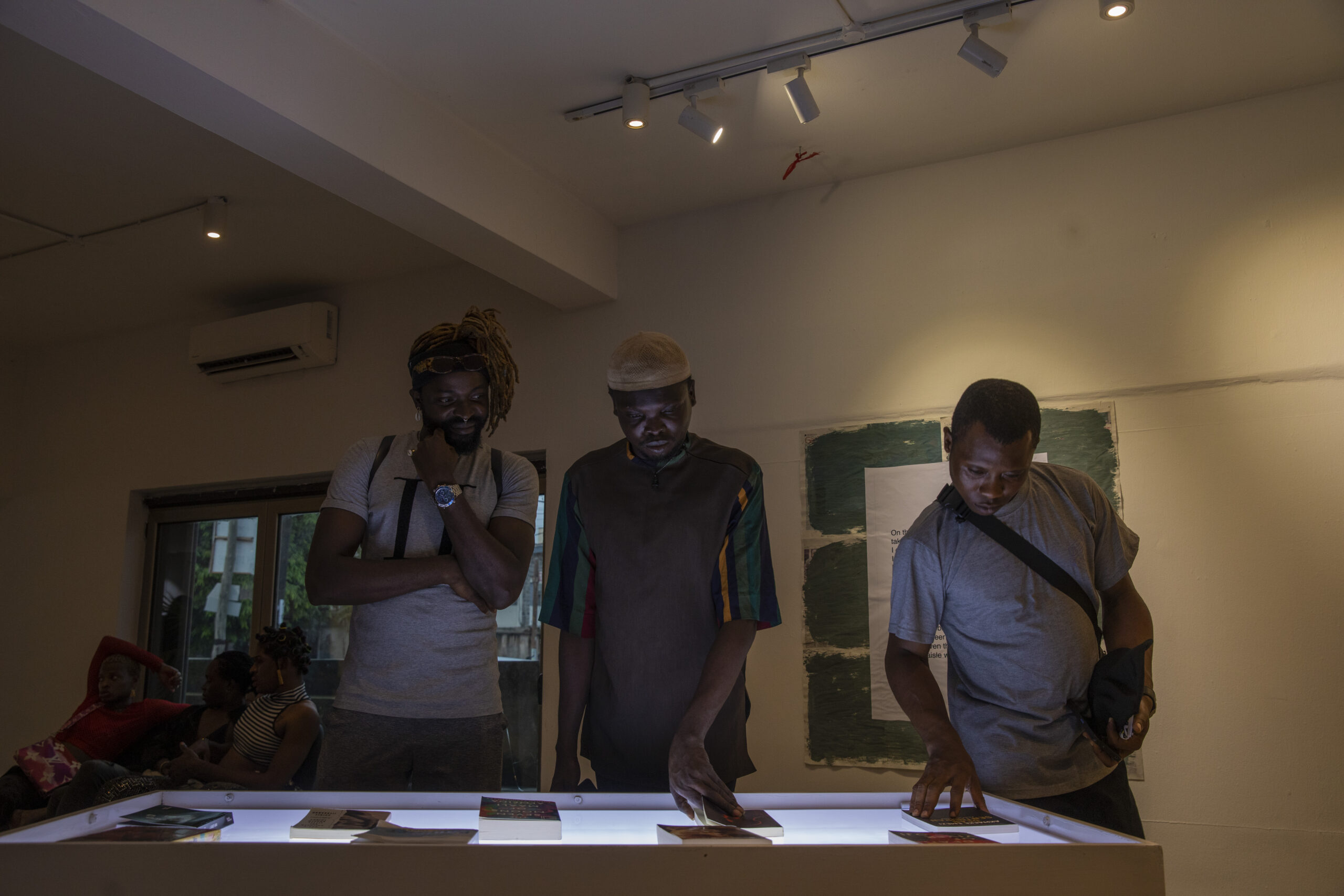
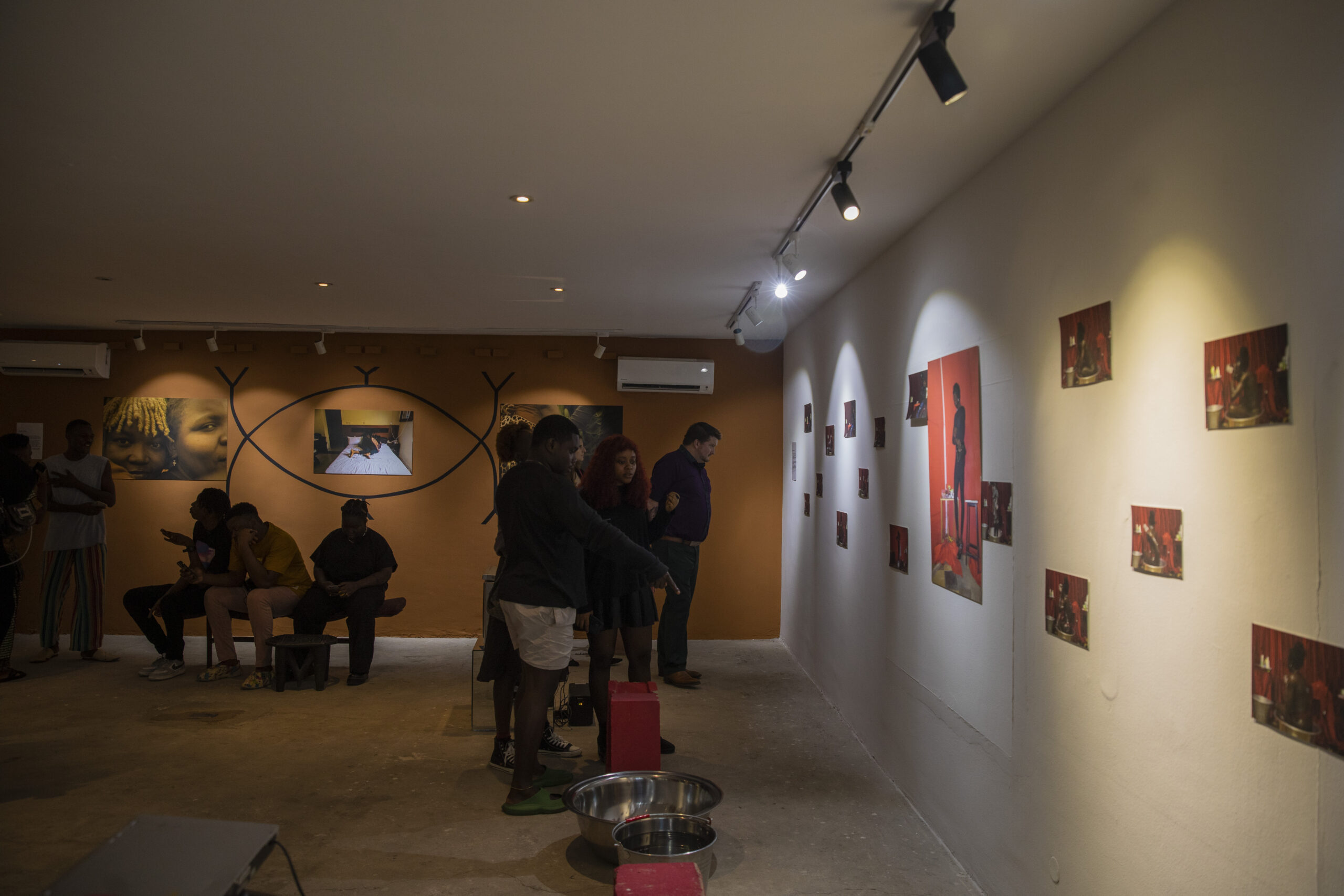
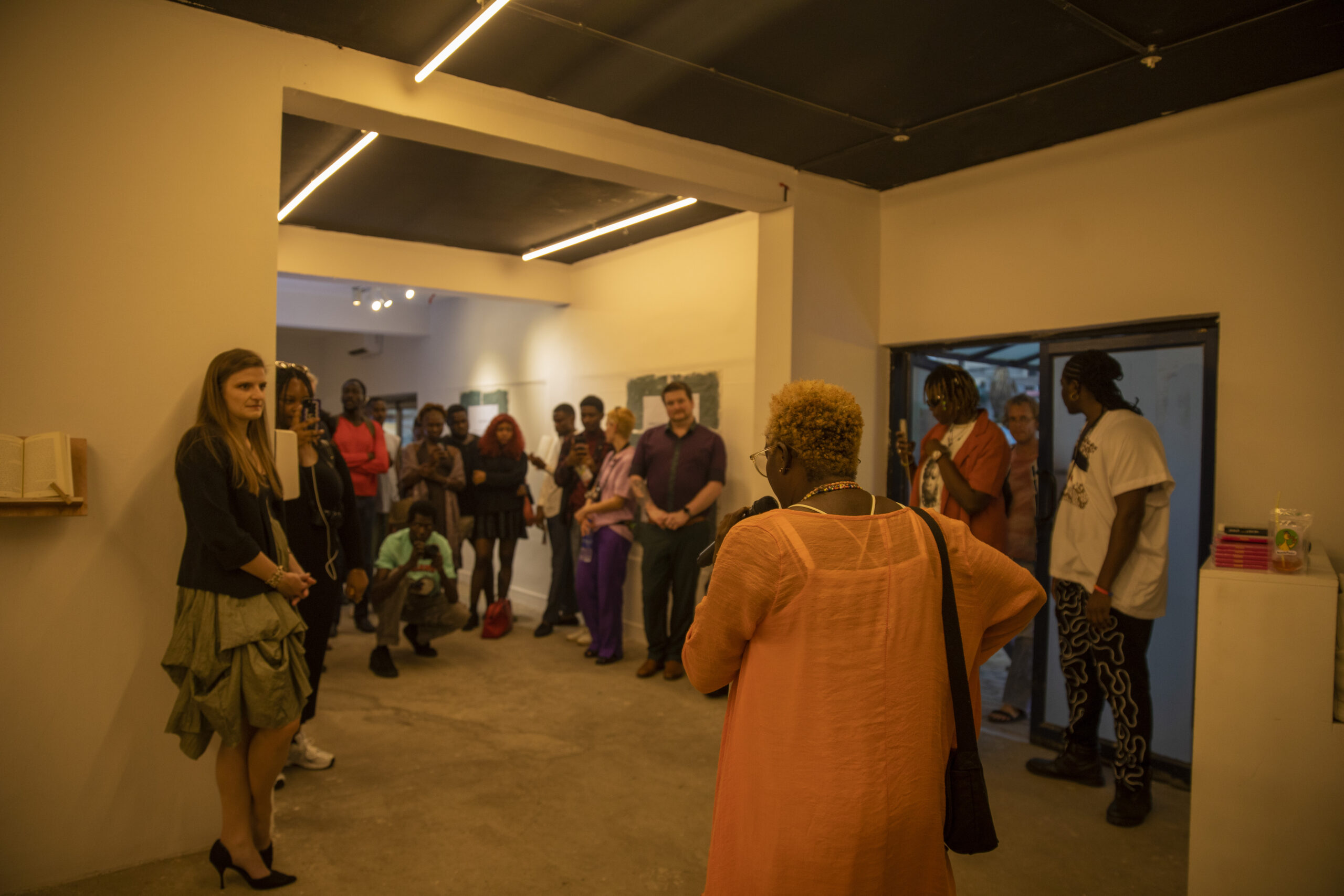
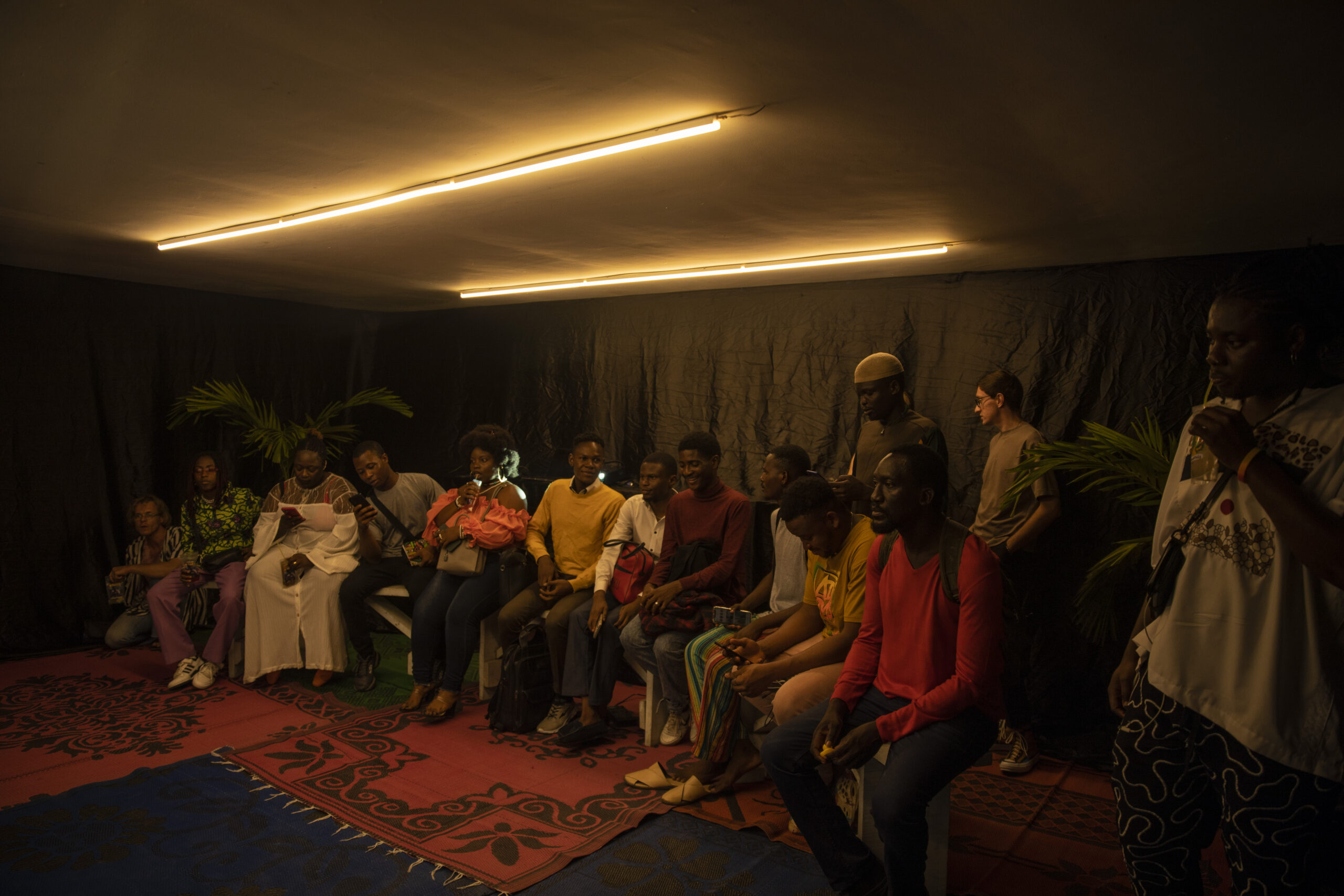
The focused group discussion organised on the first day created a space where LGBTQ persons could talk about how they navigate a homophobic world using queer-coded words, the origins, meaning, and contexts of these words, and words within Nigerin languages that point to their historical existence, without fear but the reassurance that the Nigerian queer reality is documented and protected.
A closed event, the focused group aimed to create a glossary on the language used within the Nigerian queer community.
The exhibition, which was held on the 28th and 30th of April, highlighted the lived realities of contemporary queer Africans through photography and experimental visual art from Sabelo Mlangeni, Rachiel Sadiu, Yagazie Emezi, Daniel Obasi, Va Bene, and more.
The panel discussion on ‘Queer(y)ing the Archive’ featured Rachel Sadiu, Nelson C.J., and Ayodele Olofintuade, who talked about the importance and dangers and navigating the dangers of creating an archive of a marginalised and criminalised group.
“My primary goal is still to write for that younger person, for queer people to feel seen. Still, it makes me uncomfortable when our lives are covered in every single detail. I think it’s important we have moments that aren’t used for content; it makes us feel like subjects all the time.” Nelson C.J. says on the navigating writing about queerness. “Straight people get to water down what these things mean, and sometimes it makes it easier for them to mask and abuse queer people.”
Still, “certain things need to go mainstream to protect the most vulnerable of us,” Olofintuade says.
But as important as documentation is, there are certain complexities to doing it right, and one of the most important is allowing people to decide if and when they want to be documented.
“Allowing people to decide if they want to commit to that level of danger matters. Asking permission and having a relationship (with them) makes it easier for them to approach (me) when they want a picture taken down, especially when their circumstances change or there’s danger.” Sadiu says.
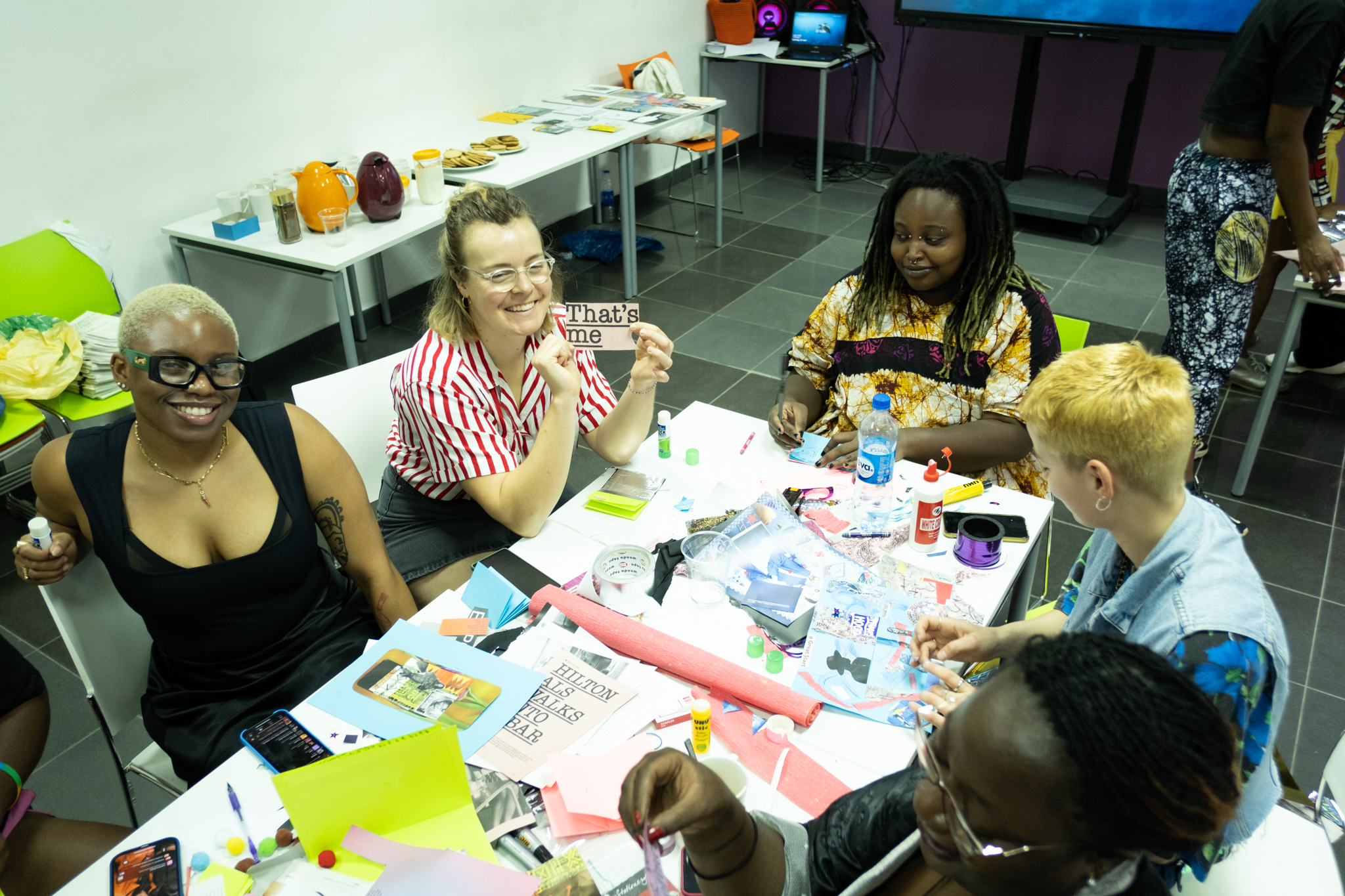
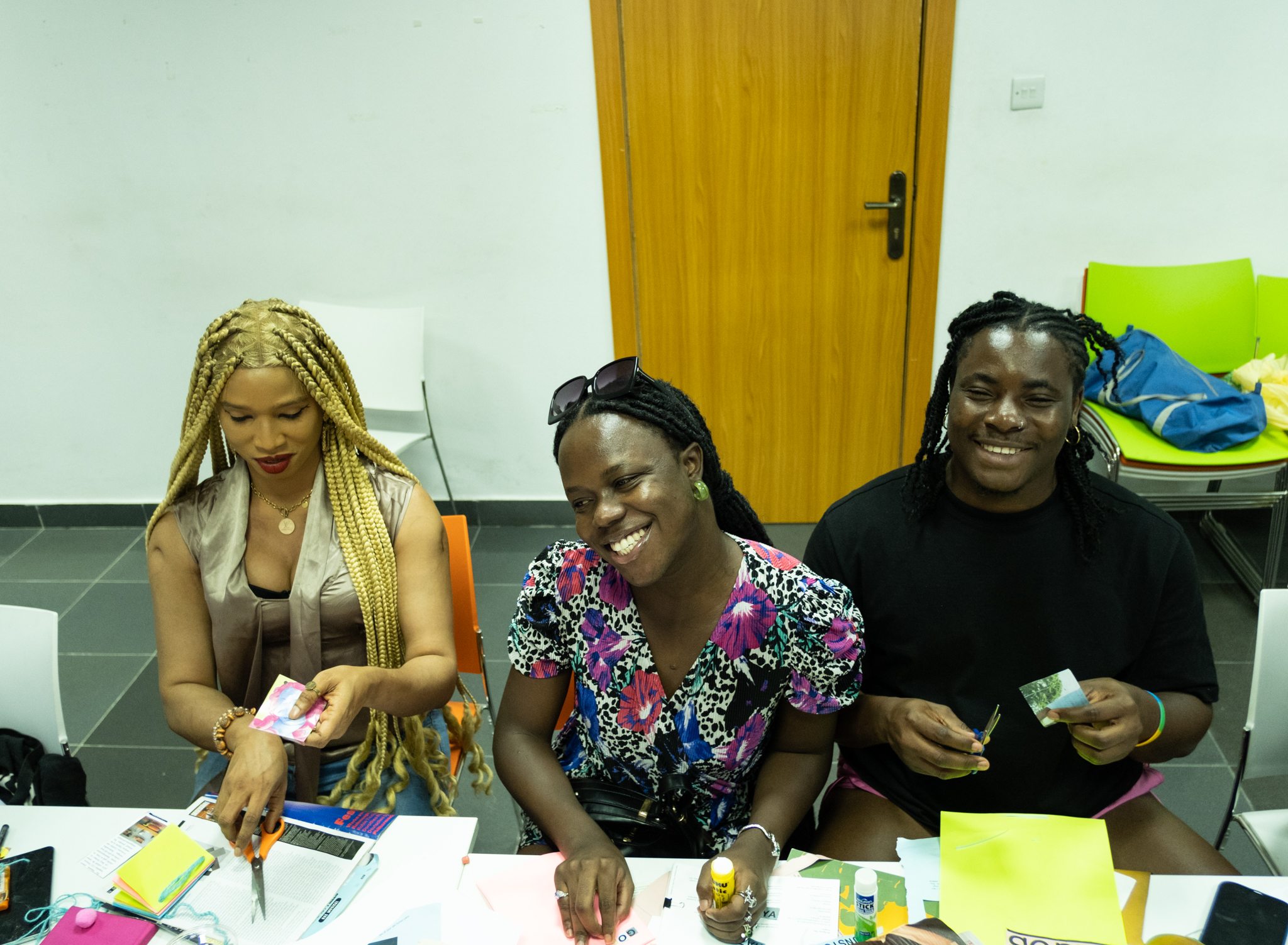
The second day featured a Zine workshop. Zines, which are self-published works that feature original or appropriated text and images, have a history intertwined with minority groups where they have played a crucial role in spreading political and personal messages of people who are often underrepresented in mainstream media.
For instance, in the 1960s, zines such as “We Called a Strike” by Black and Red provided unfiltered personal accounts of what it meant to be Black during the civil rights movement, and in the 1990s, zines by Riot Grrl helped spread the feminist manifesto.
In a relaxed and fun space, the workshop taught participants how to create zines and allowed them to create individual zines that record and share their experiences, goals, and personality.
In a country where queer individuals live on the edge, spaces and projects like these are important in not just documenting queer culture but also ensuring members of the culture can be free. To protect this, the archive was hosted in Germany to avoid censorship and will be separated into publicly and privately available information to protect the community further.
The Germany exhibition for the A Wa Nibi Project took place in Hamburg, Germany, from June 1st to June 3rd, bringing and expanding conversations and art around the Nigerian queer experience to a global audience.
Adebayo Quadry-Adekanbi, one of the hosts of the Nigerain exhibition, says, “We’re not always infallible. So when we use the archives wrongly, get ready to be called out, and when we use the archives rightly, get ready to be celebrated.”
Edited/Reviewed by: Caleb Okereke
Samuel Banjoko is a Supporting Editor at Minority Africa. He is a Nigerian writer based in Ibadan, Nigeria who enjoys writing about art and culture.






